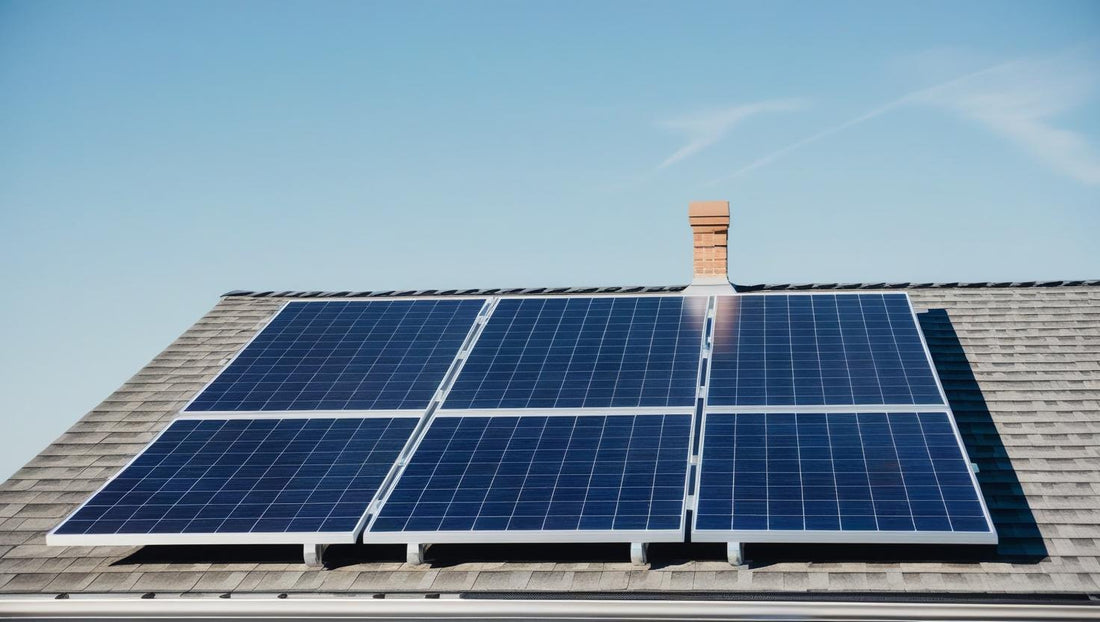
When most people think about solar panels, their first thought is usually “How much can I save on my electricity bill?” But a deeper question lies beneath: How efficient is the solar panel I’m installing? In 2025, as energy demands rise and rooftop space becomes a premium, solar panel efficiency has become one of the most important factors in choosing the right system.
Whether you're a first-time buyer or upgrading your current setup, understanding solar panel efficiency will help you make smarter, longer-lasting decisions. Let’s walk you through what it really means, why it matters, and how leading brands like Jinko Solar Panels, Canadian Solar Panels, and Astronergy Solar Panels compare.
What Is Solar Panel Efficiency?
Breaking It Down
Solar panel efficiency refers to the percentage of sunlight that a panel can convert into usable electricity. For example, if a panel has a 20% efficiency rating, it can convert 20% of the sunlight it absorbs into electrical energy.
In simpler terms: the higher the efficiency, the more electricity you get from a smaller area. And that’s a big deal, especially for homeowners with limited roof space or for businesses wanting to maximize every inch of their solar array.
How Is It Measured?
Efficiency is measured under Standard Test Conditions (STC), which simulate ideal sunlight, temperature, and orientation. However, real-world conditions can vary, so the best brands design panels to maintain performance even in less-than-perfect environments.
What Affects Solar Panel Efficiency?
Material & Technology
One of the biggest factors is the type of material used. Monocrystalline panels—like those used in Jinko Solar Panels and Canadian Solar Panels—typically offer higher efficiency than polycrystalline or thin-film options.
In 2025, we’re also seeing a rise in bifacial solar panel designs. These advanced panels absorb sunlight from both sides, boosting energy production without needing extra space.
Temperature & Light Conditions
Most panels lose a bit of efficiency as they heat up. This is where brands like Astronergy Solar Panels shine—they are engineered for better heat tolerance and durability in harsh conditions.
Low-light performance is another key metric. Even on cloudy days or during early morning and late afternoon hours, high-efficiency panels continue to produce decent output.
Why Efficiency Isn’t the Only Thing That Matters
Bigger Isn’t Always Better
Yes, higher efficiency is great—but it often comes at a higher cost. If you have ample roof space and can install multiple panels, a slightly lower efficiency panel might offer better value overall.
For example, some models of Canadian Solar Panels offer modest efficiency but come with a strong reputation for durability, lower degradation, and affordable pricing. On the other hand, Jinko Solar Panels deliver higher efficiency in less space—perfect for tight urban rooftops.
Think Long-Term ROI
Don’t just look at the efficiency rating on paper—consider the real-world return on investment (ROI). Bifacial solar panels may cost a bit more initially, but their higher production (especially on reflective surfaces) often pays off within a few extra years.
Comparing Top Efficient Solar Panel Brands in 2025
Jinko Solar Panels
Jinko solar panels has long been a market leader in high-efficiency solar technology. Their Tiger Neo series in 2025 boasts efficiency ratings up to 22% with excellent low-light and bifacial performance.
These panels are ideal for residential and commercial setups where space is limited but performance can’t be compromised.
Canadian Solar Panels
Canadian Solar Panels are known for their well-rounded efficiency and affordability. While they may not always top the efficiency charts, their BiHiKu and HiKu series offer strong real-world performance and competitive pricing—especially in large installations.
They’re also excellent for colder or snow-prone regions thanks to better reflectivity, especially when paired with bifacial solar panel models.
Astronergy Solar Panels
Astronergy solar panel is emerging as a strong player in the high-efficiency market with panels built for endurance and smart hybrid systems. Their panels come with advanced PERC and bifacial tech, delivering strong efficiency even in dusty or high-temperature areas.
They’re perfect for off-grid homes, industrial use, and hybrid inverter systems.
Should You Prioritize Efficiency When Buying Solar Panels?
Depends on Your Goals
Ask yourself:
-
Do I have limited roof space?
-
Do I want the highest possible energy yield?
-
Is maximizing ROI a long-term goal?
-
Am I installing panels in a challenging climate?
If you answered yes to any of the above, then investing in high-efficiency panels like Jinko Solar Panels or bifacial solar panels from Astronergy is worth considering. If budget is a top priority and you have ample installation area, then Canadian Solar Panels offer a fantastic balance.
Final Thoughts: Efficiency Is Only One Piece of the Puzzle
Efficiency matters—but it’s just one part of the solar decision-making process. Solar panels in 2025 are more powerful, smarter, and more varied than ever. Whether you opt for bifacial solar panels, top-tier performers like Jinko, or value-packed options like Canadian Solar Panels, what’s most important is matching the technology to your unique situation.








